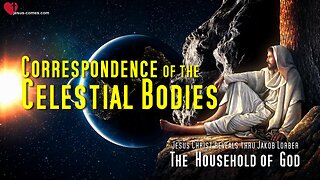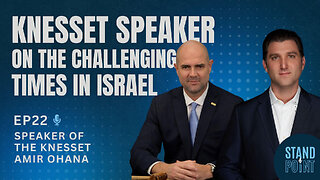Commandment 7 ❤️ You shall not steal !... But what does steal mean in the eyes of God?
Text & Audio to Videocontent & Related Messages... https://jesus-comes.com/index.php/2018/10/08/gebot-7-du-sollst-nicht-stehlen-commandment-7-you-shall-not-steal/
Channel Overview... https://jesus-comes.com/index.php/2022/10/16/kanalubersicht-channel-overview/
Video Playlist Commandments of God... https://www.youtube.com/playlist?list=PL73-eEs6JmCsw5J2MK1od7SnWFzMmUpBW
Commandments Overview... https://jesus-comes.com/index.php/2015/12/03/erlaeuterung-zu-den-zwoelf-geboten-des-herrn-10-gebote-moses-und-die-2-gebote-der-liebe-jakob-lorber/
Read online... https://search.jesus-comes.com/index.php?title=SSUN2-82
The Third Testament in various Languages... https://jesus-comes.com/index.php/das-dritte-testament-the-third-testament-el-tercer-testamento/
Jesus' Revelations thru Jakob Lorber... https://jesus-comes.com/index.php/category/english/jakob-lorber-pdfs/
Jesus' Revelations thru Gottfried Mayerhofer... https://jesus-comes.com/index.php/category/english/53-sermons-of-jesus/
LoveLetters from Jesus... https://jesus-comes.com/index.php/liebesbriefe-von-jesus-love-letters-from-jesus/
Trumpet Call of God... https://awakeningforreality.com/latest-video-and-audio-letters-neuste-video-und-audio-briefe/
7th Commandmant… You shall not steal
The Spiritual Sun, Vol. 2
Messages of Jesus Christ on the spiritual life in the Beyond
Given thru the inner word to Jakob Lorber (1842-43)
Millions and Millions of souls from children are mentored, taught and provided for in the ‘Kingdom of the Children’ (Spiritual Sun Volume 2, 67-101). The Guidance through the ‘Children’s Kingdom’ takes place by the Apostle of Love, John.
Explanation of the 7th Commandment
Chapter 82 – The seventh commandment in the seventh classroom
1. We are in the seventh hall. See, in the middle of it on a tablet on a white pillar is written in a clearly legible font: “Thou shalt not steal!” Here, at the first sight of this law-table, the question inevitably comes to everyone’s mind:
2. What can be stolen here, since no one owns any property, but everyone is just a usufructuary of what the Lord gives? This question is natural and has its good meaning, but it can also be posed with the same right on the world- body; for even on the earth body, all that is there is the Lord’s, and yet men can steal from each other in every possible way.
3. Could not one also ask and say: has the Lord not created the world equally for all men, and does not every man have the same right to all that the created world offers for the various pleasures? But if the Lord has certainly created the world not only for individuals, but for all, and therefore everyone has the right to enjoy the products of the world according to his needs, what good was this commandment by which man is obviously given the right to own, creating the possibility for theft? For where there is no mine and no thine, but merely a universal everything for all, then I would like to see the one who, with all his will, could steal something from his neighbor.
4. Would it not have been wiser then, to abolish every right of ownership for all time, instead of giving the commandment by which a separate property right is dangerously granted? This commandment would therefore be completely dispensable, all property courts of the world would never have arisen, and people could easily live among themselves as true brothers.
5. It must be remembered that the Lord gave this commandment through Moses just at a time when not one person had any of his own wealth among all the numerous children of Israel; for the gold and silver taken from Egypt, was the common property of the people under the supervision of their leader.
6. But as far as clothing is concerned, it was extremely simple and so poor that a single garment in your present time would certainly not exceed the value of some poor cents. Not one of the Israelites had a supply of clothing, but what he wore was all he possessed.
7. Then came this commandment. Surely the Israelite people had to ask each other with wide eyes: What should we steal from each other? Perhaps our children, yet everyone is in this present distressing situation content to have as few children as possible? Should we steal each other’s pots? But what should we gain? Anyone who does not have a pot has the right to cook in the pot of his neighbor if he has something to cook. But if he has a pot, he will not have to seize another, so that he will have more to carry back and forth. It is truly unclear what we could steal from each other here. Each other’s honor? We are all servants and laborers of one and the same Lord, who knows well the value of each person. If we also wanted to belittle each other, what would we achieve in the face of Him who always sees us through and through? So we do not know what we should do with this commandment. Should this commandment be valid for future times, should the Lord once want to grant each of us a separate property? If that is, then He should rather leave us as we are, and the commandment will abolish itself.
8. See, so did the Israelite people occasionally reason in all seriousness, and in their position in the desert, they could not be blamed; because everyone was equal in riches and equal in reputation.
9. But could not the present people, believing in the New Testament, raise their heads before the Lord and say: O Lord! Why then did You once give such a commandment, by which a special right of ownership was granted to men on earth, and because of this right of ownership an innumerable multitude of thieves, robbers, and murderers were formed? Therefore, abolish this commandment, that the army of thieves, murderers and robbers, and all sorts of deceivers, and a second army of world judges, who have ceased to be active in all manners of charity, would stop their doing!
10. I say here: The call can be heard and appears under this critical lighting as completely valid. How and why? Firstly, one can certainly expect nothing but the very best from God as the most loving Father. How could one possibly think that God, as the very best Father of men, wanted to give them a constitution which must make them unhappy, temporally and eternally?
11. But if one must ascribe to God the supreme goodness, the highest wisdom, and thus omniscience, according to which He must know what fruit such a commandment will unfailingly bear, then one cannot help but wonder: Lord! Why did you give us such a commandment, why did we oftentimes become unspeakably unhappy because of it? Was it really Your will, or did You not give this commandment, but the people only added it later on because of their self-interest, for example, by isolating themselves from the general number of their brethren and then legitimising themselves in such a state to collect peculiar treasures, to help them rise more easily as rulers over all their poor brothers? See, all that can be heard, and nobody can deny it. On top of that, one has to sprinkle some grains of real frankincense on a human mind, at least during this time, if he found it worthwhile to critically illuminate the laws of Moses in this way. But who won anything in this review? Not the people and certainly not the Lord, because this criticism does not express the Divine love and wisdom.
12. But how then shall this law be taken and understood, that it may appear as perfectly sanctified before God and to all men, that it would utter the highest Divine love and wisdom, and bear in itself the wisdom of the Lord for temporal and eternal bliss? Well, as it has been explained up till now, especially presently, it has indeed only caused mischief. Therefore, by the Lord’s mercy, we want to reveal the true meaning of this commandment, that men should find in it their salvation, not mischief. But in order to accomplish this, we will first consider what must be understood by stealing.
Chapter 83 – What does ‘steal’ mean?
1. The fact that under the concept of “stealing” it was impossible at first to understand the unauthorized removal of the material possessions of another is clear from the fact that, especially at the time of legislation, no one from the Israelite people owned any property. Even when the people had moved into the Promised Land, their state constitution was ordered as such that no one could have full ownership in this land. But apart from that, property was communal as much as possible, and every poor Israelite, if he lived in the Divine order, could find everywhere the most hospitable reception and lodging.
2. But if in this commandment meant by “stealing”, the arbitrary and deliberate removal of the goods of another, then, as has been shown sufficiently clear in the course of this illustration, the blame would inevitably fall upon the legislator, thereby quietly procuring the industry and would also defend usury. For that must be obvious for everyone at first glance, if he is only capable of somewhat brighter thinking, that the right to property is then introduced as perfectly sanctioned and confirmed, as soon as one gives a law by which the property of each would be completely secured.
3. On the other hand, how could one expect such a law from that legislator who spoke to His disciples with His own mouth: “Do not worry about what you will eat and drink and what you will clothe your body with, because that is what the heathens are after. But above all, seek the kingdom of God; everything else will be given unto you.
4. The same legislator continues: “The birds have their nests, and the foxes their holes, but the Son of Man does not have a stone that He puts under his head!” On the other hand, we see His disciples even on a sabbath rubbing corn ears, and thereby obviously steal. But when the landlords complained about it, who got a reprimand and a very sensitive rebuke from the Great Lawmaker? You only have to look in the Book and everything will be clear to you.
5. We again see the same Legislator once in a position to pay a toll. Did He reach into His own pocket? Oh, no, He knew that in the nearby lake a fish had swallowed a lost stater. Peter had to go and take the coin out of the throat of the fish held by the power of the Lord and pay the toll with it.
6. But I ask: Does the finder have the right of ownership in any good find in whatever way? Did not the Great Lawgiver have to know – or did He not want to know – that of what He had found in the fish he had the right only for one third of it, and only after He made His find publicly or officially known? He did not do as such. Accordingly, He apparently committed a double theft or, basically, embezzlement.
7. Further, one might ask after the principles of law – assuming that few Jews fully knew who Christ actually was – who had granted Himself the right to have the known donkey taken from their owner, and then use it Himself at His own discretion.
8. One can say here: He is the Master of all nature and everything anyway belongs to Him. That is correct, but how then does He speak in worldly terms, saying that the Son of man has no stone, and on the other hand He says that He did not come to abrogate the law, but to fulfill it to the dot.
9. If we wanted to follow His story, we would still find many things where the Great Legislator, according to the present principles of property law and the comprehensive juridical explanation of the seventh commandment, has obviously transgressed these legal principles. What would happen to anyone who destroyed an owner’s tree or destroyed a large herd of pigs and more? I think we have enough of the examples that make it abundantly clear that the Great Lawmaker has intended with this seventh commandment, a very different meaning than was later given to it by a greedy and selfish humanity.
10. One can now say: This is now very clear and obvious, but the meaning He has connected it with, is still behind a dense veil! But I say: only patience! As we have until now properly illuminated the misconception of this commandment, the true meaning of this commandment will certainly be easy to find; for someone who can see in the night, will not be afraid that he will have too little light during the day.
11. What does it mean then after all, in the actual truest sense: “Thou shalt not steal?” – In the true sense it means as much as:
12. You should never abandon the Divine order, not put yourself out of it, and seize the rights of God.
13. But what are these rights and what do they consist of? God alone is holy and all power is His alone! Whom God sanctifies Himself and gives him power, he rightly owns it; but he who sanctifies himself and seizes the Divine power in order to rule in the luster of selfishness and avarice, is in the true sense a thief, a robber and a murderer!
14. Therefore, whoever is arbitrary and self-loving in whatever external appearances and deceptive means, be it earthly or spiritual, and rises above his brothers, it is he who transgresses this commandment. This is the sense in which this is taught to these children here, and it is shown in a practical way, that no spirit should ever arbitrarily use the power and might inherent in it, but only and at all times, in the Divine order.
15. But one will say now: If so, then the well-known stealing and robbing is allowed. But I say: Only patience, the next episode shall bring everything into the clear. But for now let us settle this by knowing what is meant by stealing, and that the Lord has never established a right of ownership by this commandment.
Chapter 84 – Comments on social issues
1. It can now be asked, since the Lord never introduced a right of ownership, and therefore never gave any commandment by which one should specifically respect the accumulated fortune of so many stingy usurers, and that in contrast to a host of the very poorest people, – whether one may then steal; namely, what such “usurers”, contrary to the Divine law, have accumulated? Because one takes away, according to earthly laws, the stolen items from a thief as soon as he is found. Should one then not have the right to take away from the most basic thieves and robbers who transgressed the Divine law, the accumulated riches and distribute them amongst the needy?
2. According to the intellectual conclusion, none could object to this demand; but the true man has higher powers in himself than his intellect. But what will these say to this intellectual endorsement?
3. Let us ask our charity and our love of God. What does it say in our innermost, eternally living spirit out of God? It says nothing but what the Lord Himself has spoken, namely: “My kingdom is not of this world – and who loves his outer life, he will lose the inner; but he who flees his outer life and pays little attention to it, will keep his inner self.” This is what the inner spirit speaks.
4. Nowhere do we see an invitation to help ourselves to the goods of the rich. The Lord Himself says: “Pay to the Emperor what belongs to the Emperor.” Likewise does He not command the rich young man to sell his goods, but only gives him friendly counsel and the promise of eternal life.
5. Therefore, since we nowhere come across a commandment from the Lord, by which He had expressly commanded to somehow seize the wealth of the usurers, it is certainly as clear as day, that a true Christian has no right to own the goods of the rich. Even the one who is in the greatest distress has no justifiable right to seize the goods of even the basest thief, but in the case of a great state of emergency, a whole people has the right to do so.
6. Why then? Because then the Lord Himself appears among the people as a ruler and thus causes a just judgment for the insatiable usurers. Not even then should anyone, except in the highest emergency, allow himself to assassinate the usurers and the hard-hearted rich, but should only take from them as much of their most superfluous treasures as the people need to support themselves, to get themselves on their feet and to be able to peacefully acquire sustenance again.
7. But to the rich usurer should still be left so much that he does not suffer in the world; because that is his only reward for his work. The Lord does not want to punish anyone, but only reward everyone according to the nature of his activity.
8. But since the rich and the usurer cannot expect anything after this earthly life, it is quite fair that he finds his reward for his talent there, where he worked.
9. The Lord also will not judge a person completely in this world, so that there can still be a possibility for everyone to voluntarily turn from the world and return to the Lord. If everything were taken away from such a rich usurer, he would already be completely judged; for despair will take possession of him and an endless anger, in which he can never possibly enter the path of salvation. But if a sufficient fortune has been left for him, he is for the time being exposed to no earthly misery and does not appear completely unrewarded for his austerity; but secondly, in this condition, he is not yet completely judged, and he still can obey the counsel that the Lord has given to the rich youth, to thereby attain eternal life.
10. But where such extreme action would be taken by a deeply impoverished people, it should never be done in a gruesome way; for as soon as this happens, the Lord no longer works with the people, and the people will not see their deeds blessed! For if they prevail today, they will be beaten again tomorrow, and one bloodbath will flow into the other! Man should never forget that all men are his brothers. He should always do what he does with a love-filled heart; He should never want to do anything bad to anyone, but only to do something good at all times, especially regarding the spiritual share of eternal life.
11. If this is his purpose, then the Lord will bless his action, but on the contrary, curse it! For if the Lord, even though all authority in heaven and on earth is His, and He has no one to query what He does or does not do, does Himself not want to be an eternally deadly Judge, the less should any man on earth do something according to his ardent will.
12. But woe to the people which rise without the utmost necessity against the rich and powerful! These will be bitterly punished for this act; because poverty is of the Lord. He who loves the Lord loves poverty too; the wealth and the well-being, however, are of the world and of Satan! He who seeks that which is of the world, and loves it, has taken Satan into himself from head to toe!
13. Therefore, as long as any people can only be partly saturated once a day and still be able to sustain life, so long should it not rise. But when the rich and usurers have taken almost everything, so that thousands of poor people are evidently threatened with starvation, then it is time to rise and share the superfluous goods of the rich among themselves; for then the Lord wants the rich to be chastised to a great extent for their shameful self-love and greed.
14. At the end of the treatise on this commandment, perhaps someone might ask whether the interest on borrowed capital is not, to a certain extent, contrary to the seventh commandment. Here I say: If in a state the interest rate is determined by law, then it is also permissible, according to this interest rate, to gather the interests of the rich; but if someone has lent necessary capital to a needy person, he should not charge any interest.
15. If this poor man has helped himself with this capital to the extent that he is now bourgeois in his trade, he should be inclined to repay the borrowed capital to his friend. If he wants to pay the legal interest out of gratitude, the lender should not accept it, but he should remind the payer to give it to his poorer brothers according to his ability.
16. But no one should lend capital to the utterly poor, but what one gives them, should be given to them completely. That is the will of the Lord in this regard. He who does this, will love the Lord. Since we have thus touched upon everything concerning this commandment, we may at once go to the Eighth Hall, where we shall learn a commandment which in many respects will be like this seventh one.
-
 11:05
11:05
Jesus' Revelations thru Jakob Lorber English
1 month agoCorrespondence of the Celestial Bodies... Jesus explains ❤️ The Household of God thru Jakob Lorber
741 -

Major League Fishing
2 days agoBass Pro Tour LIVE - Stage Three - Day 1
53K4 -
 LIVE
LIVE
MissesMaam
7 hours agoFinally Doing Ironworks Missions | Fallout 4 ✨ (pt. 11) 💚
473 watching -
 1:06:30
1:06:30
Lee Camp
5 hours agoLIVE: Pro-Israel Mobs & The State Cooperate To Crush Dissent!
21.9K -
 1:57:39
1:57:39
Matt Kim
1 day agoShaneyyricch live in Studio
27.3K3 -
 2:57:41
2:57:41
The Charlie Kirk Show
6 hours agoDid Republicans Ban the Bible? + Gone to the Dogs | Rep. Davidson, O'Keefe, Knowles | LIVE 5.2.24
98.7K129 -
 1:43:16
1:43:16
John Burk
5 hours agoAntisemitism bill, Biden in league with big tech on covid, and Al Sharpton returns.
23.4K12 -
 1:38:54
1:38:54
James Kaddis
14 hours agoThe World Just Changed Overnight! Did You Notice?
29.5K14 -
 38:35
38:35
Standpoint with Gabe Groisman
5 hours agoEp. 22. Knesset Speaker on The Challenging Times in Israel. Amir Ohana
28.2K20 -
 2:42:14
2:42:14
Russell Brand
9 hours agoPower-Grabbing WHO Pandemic Treaty Is BACK - And It’s Worse Than You Thought- Stay Free #357
171K440